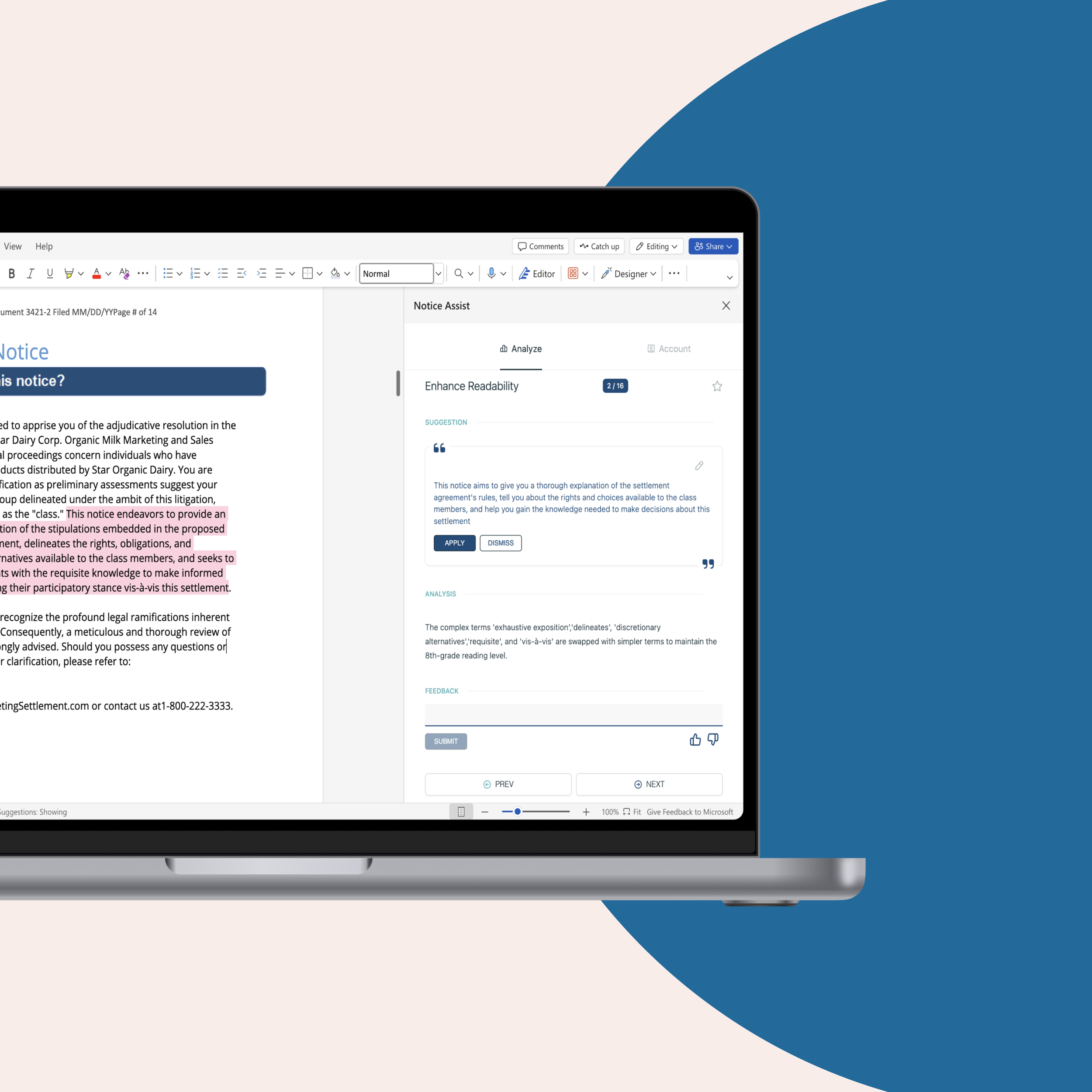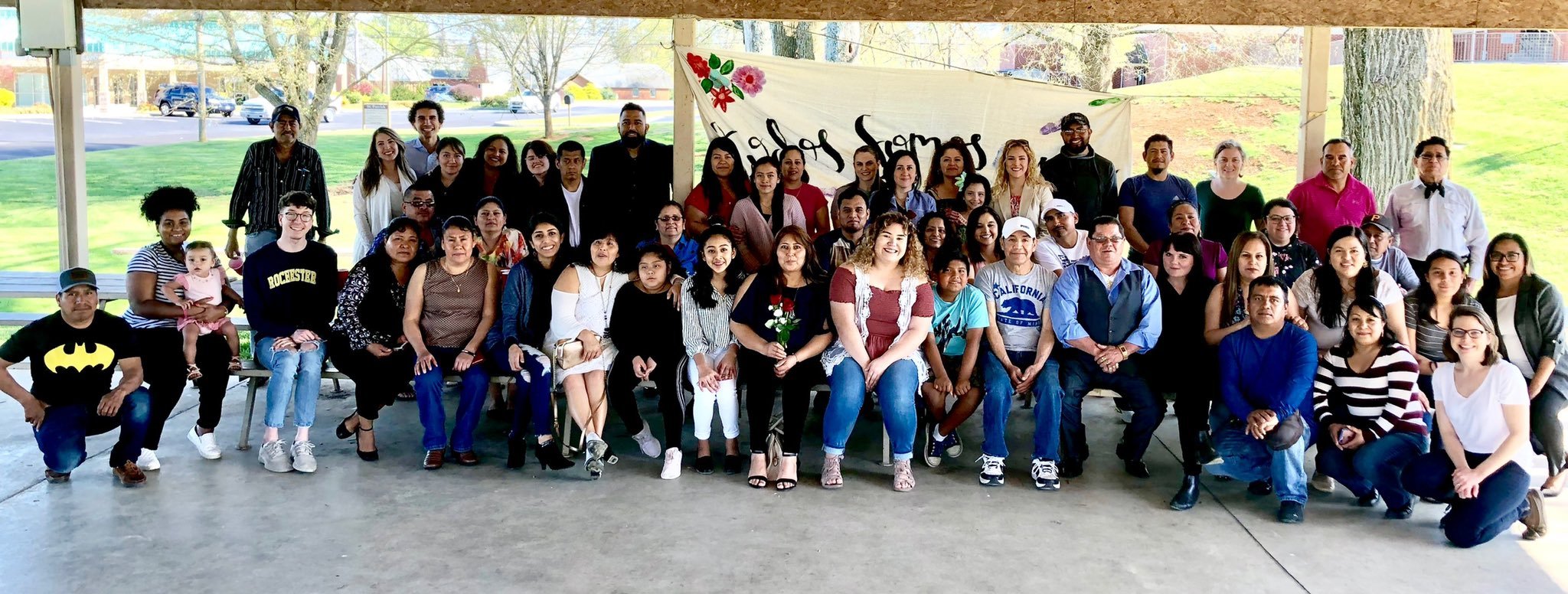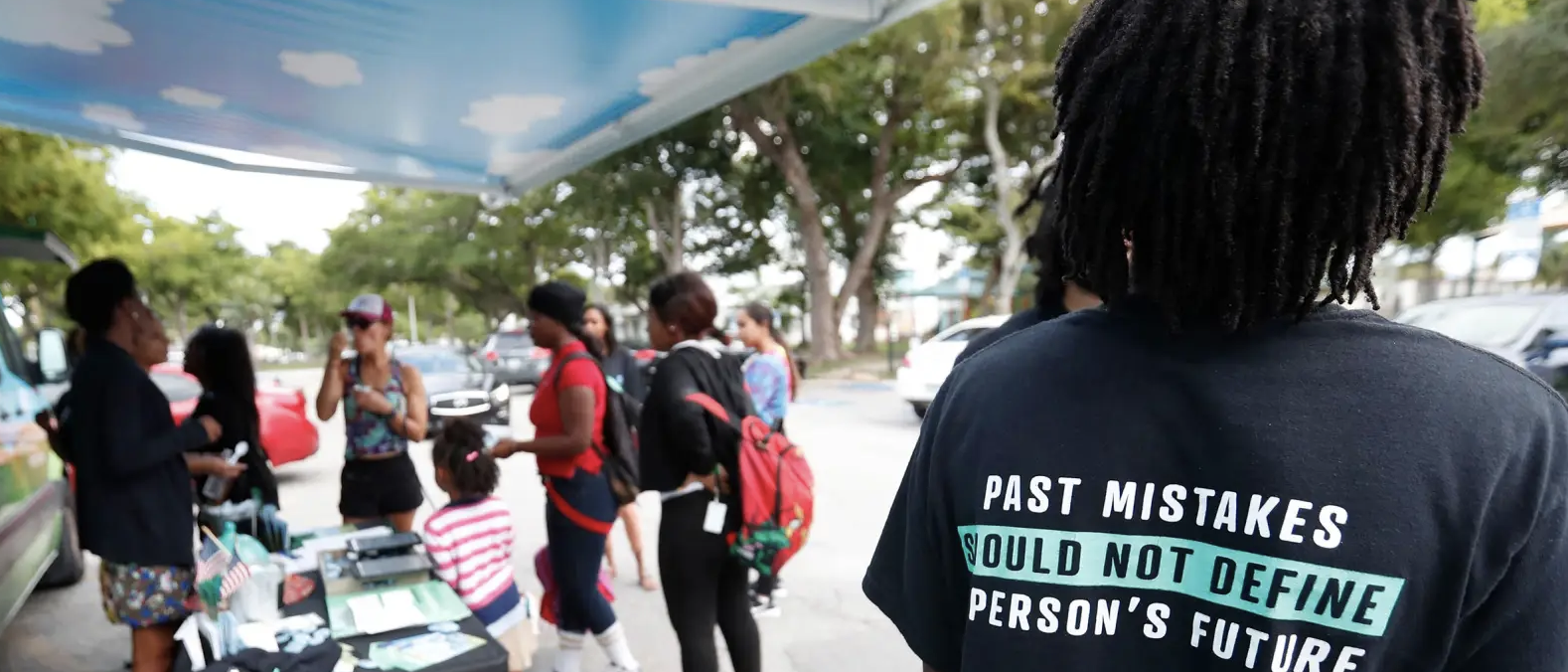
PRACTITIONER BLOG
Read our analyses of developments in Impact Litigation and stay current on class action law
Top 10 Tips For Your Next Class Action Settlement Mediation
It is the day we are all waiting for. Game Day. Mediation. Your firm has spent 1,246.7 hours on the case so far, but everything will happen in these 12 hours. By the end of the day, you are so emotionally exhausted from the mediator pounding on you, and so happy to have the mediator come in with a number that you can tolerate, that you walk out with a pending mediator’s proposal that only says the gross dollar value of the global settlement. Perhaps you leave the mediation with a handshake agreement, but without nailing down the details of the Memorandum of Understanding. Oops. The devil was in those particular details. Everyone who has negotiated a class action settlement has probably had some term he or she forgot to address at mediation, or in the MOU, that returned in drafting the “final” agreement as a big headache and put the deal at risk. I have. I have thought, at many class action mediations, “I wish I had a checklist so I would remember all the key terms.” Here it is...

Launching NoticeAssist: Software That Helps Litigators Draft Better Class Action Notices
Last month we launched NoticeAssist, the first-of-its-kind, free software tool to help practitioners draft clear and effective class notices. In a moment, I’ll tell you what it can do for you. But, some of you may be wondering - why software and why now?

The Seventh Circuit Breaks with Eleventh, Allows Service Awards for Named Plaintiffs
In 2020, a panel of the Eleventh Circuit Court of Appeals stunned the class action bar when it ruled in Johnson v. NPAS Solutions., LLC, 975 F.3d 1244 (11th Cir. 2020), that service awards for class representatives are categorically unlawful. Service awards are financial payments to class representatives that have long been used to acknowledge their service to the class. In April of 2024, the Seventh Circuit split with the Eleventh Circuit when it allowed service awards.

IMPACT FUND & AMICI to CALIFORNIA COURT OF APPEAL: PROTECT CATALYST FEES
In June, Impact Fund filed an amicus brief on behalf of thirty-six other public interest law organizations in San Diego Tenant Union et al. v. San Diego Housing Commission et al., in the California Court of Appeal. Our brief asked the Court to affirm the availability of catalyst fees to plaintiffs' counsel in successful public interest lawsuits because nonprofit legal services organizations rely upon the fee-shifting provisions of catalyst fees to undertake important litigation. “Catalyst fees” are a legal mechanism by which defendants pay plaintiffs attorneys’ fees when plaintiffs’ lawsuit induces defendants to provide the relief sought by plaintiffs—in other words, when plaintiffs’ lawsuit “catalyzes” defendants’ change in conduct.

How One Clause in Uber’s Terms of Use Could Overload U.S. Courts
If you’ve ever ridden in an Uber, you’ve ‘agreed’ to their non-negotiable terms of use. One of those terms, called the Non-Consolidation Clause, waives your right to participate in “consolidated proceedings,” group proceedings like class action lawsuits and multi-district litigation. Basically, Uber is requiring all customers to bring cases individually, regardless of what the case is about or what kind of proceeding it is. If successful, this new corporate mechanism has the potential to overload our already taxed courts.

Watching a Juris Doctor Save Lives: Partnering with Lambda Legal to Fight for Healthcare for All
Together with Lambda Legal and Walt Auvil of the Employment Law Center in West Virginia, my firm Nichols Kaster filed suit against West Virginia Medicaid on behalf our clients Christopher Fain and Shauntae Anderson. In that case, Fain v. Crouch, we challenged the state Medicaid program’s categorical exclusion of gender affirming surgical care under the Equal Protection Clause, the Affordable Care Act, and the Medicaid Act.

SNAP Lawsuit Dismissed - Mission Accomplished: Increased Food Security For 40M!
Shortly after Plaintiffs initiated the lawsuit, the USDA implemented a key accounting policy change that was requested in the class action complaint. The new policy provides protection for SNAP recipients by ensuring that benefits continue for one month after a lapse in federal appropriations. However, while this ensured SNAP benefits were not suddenly interrupted, because Congress continued to pass only short-term budget resolutions, class members faced ongoing uncertainty whether their benefits would be allocated on a longer-term basis. Plaintiffs reported trying to conserve their SNAP benefits by rationing funds, distracting themselves from hunger with water and sleep, and choosing between food and other basic necessities such as gas, hotel rooms for homeless plaintiffs and vital medications.

Announcing the Launch of the Class Notice Project
Starting today, litigators can access free, easy-to-use class notice templates designed to seamlessly facilitate the creation of notices that are engaging and understandable for class members.

Migrant Youth Class Action Holds Government Accountable, Sparking Landmark Reforms
In January 2024, the district court granted preliminary approval of three groundbreaking settlements to resolve the remainder of the Lucas R. case. These settlement agreements will provide new resources and protections by expanding the rights of three classes of youth in immigration custody: (1) youth with disabilities, (2) youth prescribed psychotropic medication, and (3) youth who seek assistance for legal counsel. The settlements not only represent much-needed reform, they also highlight the power youth hold when they share their stories and use their experiences to hold accountable those in power.

Female High School Athletes Go the Distance in Title IX Settlement with Hawaii Department of Education
Female athletes at Campbell alleged widespread and systemic sex discrimination. Female athletes frequently had to use bathrooms in a nearby Burger King or hide underneath bleachers to change for practice. The girl’s water polo team would often have to practice in the ocean, facing winds and waves. Meanwhile, male athletes had access to their own locker room and appropriate athletic facilities. Moreover, when Campell’s female athletes reported disparate treatment to the school, they faced retaliation and threats to cancel the girls water polo season. Plaintiffs sought injunctive relief under Title IX. They alleged the Hawaii Department of Education and the Oahu Interscholastic Association failed to provide female athletes with equal athletic participation opportunities and equal athletic treatment and benefits. Plaintiffs also alleged the Department of Education retaliated against the class when student athletes reported gender discrimination.

Impact Fund and Allies file Amicus Brief to rebuff defamation claims in Class Action litigation
The Impact Fund and amici focused on the panel’s misunderstanding of “ascertainability,” a term of art particular to class actions. Ascertainability is the implied prerequisite that a class be defined by clear and definite terms so that a court can determine who is bound by a judgment and who is entitled to relief. Critical to the issue at hand, ascertainability is a forward-looking inquiry, asking whether a court will be able to ascertain class membership at some future point in the litigation. It has never meant that plaintiffs know who is in the proposed class at the time of filing.

District Court Finds Amenities Fees To Be Illegal Excess Rent for Section 8 Tenants
The Eastern District of California recently decided in Terry v. Wasatch Advantage Group, No. 2:15-cv-00799 (E.D. Cal., November 23, 2022), that certain amenities fees are illegal excess rent and violate contract terms for the Section 8 Housing Choice Voucher Program. The Court ordered the defendants, who are private property owners and managers, to repay the fees to their tenants.

Tesla Trounced! Court Shreds Forced Arbitration Agreement & Reaffirms Workers’ Right to Fight for the Public Good Under FEHA in Racial Discrimination Case
For the first time, a California appellate court recently held that the state’s Fair Employment and Housing Act (FEHA) authorizes plaintiffs to seek public injunctions, and any agreement purporting to waive that agreement is invalid. This decision expressly reaffirms that workers can fight for the public good under FEHA because the public suffers when employer discrimination and harassment go unchecked. California law ensures that workers can seek to protect the public from discrimination and harassment through injunctive relief, even if other types of claims are subject to mandatory individual arbitration.

Latinx Workers Reach Groundbreaking Class Action Settlement in Immigration Raid Case
In April 2018, an immigration raid at the Southeastern Provision meatpacking plant in the small town of Bean Station, Tennessee upended a community. Federal agents from Immigration and Customs Enforcement (ICE), Customs and Border Protection (CBP), and the Internal Revenue Service (IRS) descended on the plant alongside Tennessee Highway Patrol troopers and local police officers. Armed with long guns and raid gear, agents detained around 100 Latinx workers, transported them to a National Guard armory, and placed most in deportation proceedings.

Nike Runs Into Trouble Trying to Hide Discriminatory Pay Disparities
In our recent victory in the class action Cahill et al v Nike, we defeated Nike’s attempt to hide Plaintiffs’ analysis of pay disparities at the company from the public. The case is a reminder about the importance of resisting attempts by defendants to shroud class proceedings in secrecy.

Female athletes from James Campbell High School score class certification after Ninth Circuit Appeal
When several students and parents from the girl’s water polo team flagged concerns of gender discrimination, the DOE retaliated against the class. The administration threatened to cancel the water polo season, increased scrutiny of the team, and mysteriously lost required team paperwork. This retaliatory conduct and the stark inequality between male and female athletes at Campbell are out of bounds under Title IX. In an upset, the District Court denied class certification in 2019 finding that the class failed to meet numerosity standards and, for the class-wide retaliation claims, that plaintiffs failed to show typicality and commonality.

Ninth Circuit Panel Decertifies Class of Janitorial & Maintenance Workers: Impact Fund & Amici Urge Rehearing
A certified class of janitorial and maintenance workers survived two motions for decertification, successfully proved employer wrongdoing at summary judgment, and received significant damages in a jury bellwether trial before seeing their efforts undone by the Ninth Circuit. The recent panel opinion in Bowerman v. Field Asset Services, Inc., 39 F.4th 652, 661-63 (9th Cir. 2022), reversed certification after over seven years of litigation as a certified class. In doing so, the panel blatantly ignored the district judge’s repeated conclusion that the case was best managed as a class action.

West Virginia Can No Longer Discriminate Against Transgender Medicaid Participants
On August 2, 2022, federal District Court Judge Robert C. Chambers granted affirmative summary judgment for Plaintiffs in Fain et al. v. Crouch et. al, and ruled that West Virginia could no longer discriminate against transgender Medicaid participants by excluding coverage for gender-confirming surgical care. In their complaint, Plaintiffs alleged that West Virginia state health insurance plans deprive transgender people of essential, and sometimes life-saving, health care.

Case Advances Challenging “Debtors' Prison” for Non-Payment of Bond Supervision Fees in Texas
Anderson County’s bond supervision fee is another example of criminalizing poverty, and another example of how Texas is a major civil rights battlefield right now. Ability to pay is not considered and not paying can mean jail time. In other words, pre-trial defendants can be incarcerated simply because they can’t afford a fee — a modern-day debtor’s prison.

Class Action Challenging Voter Suppression in Tennessee Survives Motion to Dismiss
Under Tennessee law, anyone convicted of a felony after 1981 is stripped of the right to vote. The result of this policy is that more than 9% of the total voting age population of Tennessee – and more than 21% of African-American voting age population – cannot vote. Despite more than 365,000 Tennesseans having completed their entire felony sentences, including probation and parole, only about 3,400 people have successfully obtained Certificates of Restoration since 2016 – less than 1%.
